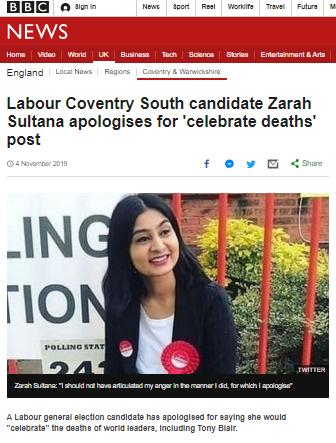This essay was written by Hadar Sela, and published in The Propagandist
The recent incidents on the streets of countries as far apart asLibya and Bahrain, Tunisia and Iran have riveted the Western world to its television sets and Twitter accounts. The sight of authoritarian regimes gunning down their own people as though they were swatting flies has us outraged. Western politicians and human rights activists issue sober statements. Western journalists devote indignant column inches to the question of ‘how could they?’ But one thing is conspicuous by its absence; any honest and thorough appraisal of how the West has been complicit for years in ensuring that such human rights abuses could come about.
To our disgrace, we in the West have largely stood by silently whilst the world’s premier human rights institution, the UN Human Rights Council, has been monopolised by nations which belong to the cadre of those today firing on their own civilians in the streets of Benghazi and Tehran.
The Human Rights Council currently includes members such as Libya, Bahrain, China, Jordan, Pakistan, Qatar and Saudi Arabia, despite the fact that its resolution of establishment demands that “members elected to the council shall uphold the highest standards in the promotion and protection of human rights”. Iran sits on the UN’s ‘’Commission on the Status of Women along with Zimbabwe. Thus, it is hardly surprising that the UNHRC has been busier attempting to push resolutions on the subject of the ‘’Defamation of Religion than it has in upholding the Universal Declaration of Human Rights in some of its member countries.
The dysfunctional nature of the UNHRC is all too apparent when one considers that human rights in Darfur, Tibet, North Korea or Zimbabwe have never been discussed in that forum or that the best it could come up with regarding Sudan was an expression of “deep concern”. In fact, the only country to have ever been specifically condemned by the UNHRC is a multicultural democracy with equal rights for women, homosexuals, religious and ethnic minorities which has a free press and an independent judiciary system – Israel.
That country alone was the subject of no less than 15 condemnations during the period since the UNHRC’s establishment on March 15th 2006 and January 24th 2008 – nine of those within its first year of functioning. Three months after its establishment, the UNHRC voted to make a review of alleged human rights abuses by Israel a permanent feature of every Council session. No other country on earth was deemed deserving of such intense scrutiny.
And so women continued to be stoned to death and homosexuals hung in Iran. Young girls continued to suffer female genital mutilation in Egypt and forced marriages in Pakistan. Women’s suffrage is still denied in Saudi Arabia and conditioned in Lebanon and the United Arab Emirates. Freedom of expression and the press continues to be severely limited in China, Iran, Syria, Libya and Yemen, to name but a few.
Meanwhile, the liberal Western world has stood by and watched these and many other human rights abuses continue and even exacerbate. In the wake of the killing and execution of hundreds of Iranians who demonstrated against the stolen elections in their country in June 2009, it was not the UNHRC which issued a (non-binding) condemnation of those human rights violations, but the Third Committee of the UN General Assembly.
Only months later, the UNHRC completed its ‘universal periodic review’ of human rights in Iran. Its conclusions were as follows:
“The Human Rights Council…Adopts…the report of the Working Group on the Islamic Republic of Iran, together with the views of the Islamic Republic of Iran concerning the recommendations and/or conclusions, as well as its voluntary commitments and its replies presented before the adoption of the outcome by the plenary to questions or issues that were not sufficiently addressed during the interactive dialogue in the Working Group.”
During the process of this review, the UNHCR heard from Iranian representatives, one of whom informed the council that:
“A salient feature of our constitution is its explicit and extensive reference to…the main pillars of human rights… Iran [has a] firm commitment to the promotion and protection of human rights …Iran is one of the prominent democratic states in the region.”
Female Iranian representatives at the review claimed that:
“The significant advancement of Iranian women’s status in the society during the period of 30 years after the victory of the Islamic revolution under the auspices of the strategic national policy and programs is undeniable.”
And even a token Christian was brought along in order to inform the UNHRC that:
“Under the constitution of the Islamic Republic of Iran, race, ethnicity, and religion do not distinguish among people, bestowing superiority to one group over another.”
Read the rest of the essay, here.




